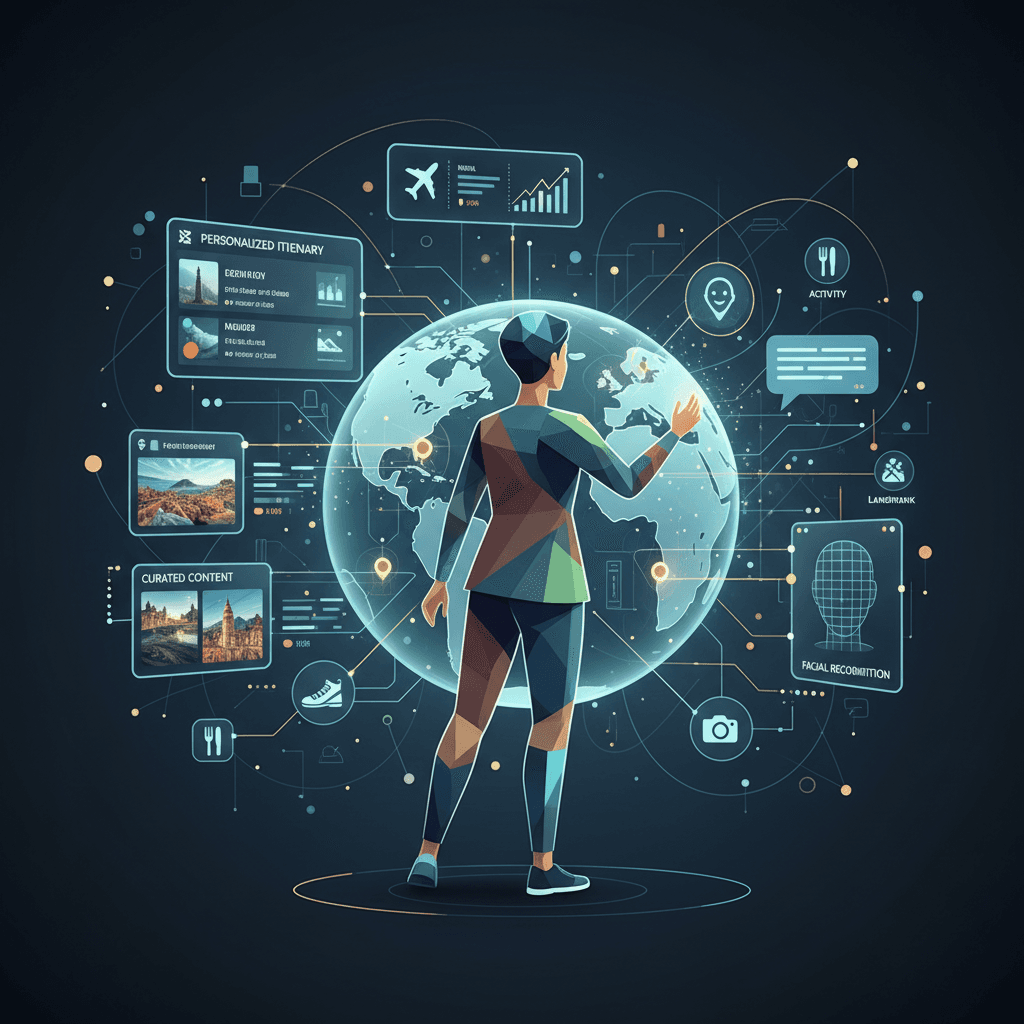AI Transforms Travel: Silent Companion Personalizes Every Stage of Your Journey
Your silent travel companion: AI personalizes every journey step, streamlining logistics, and reshaping exploration with new questions for the future.
October 7, 2025

Artificial intelligence is fundamentally reshaping the travel industry, moving from a futuristic concept to a practical tool embedded in every stage of a journey. AI is becoming a silent travel companion for many, influencing everything from the initial spark of inspiration to post-trip engagement.[1] This technological shift is streamlining processes, personalizing experiences, and offering new levels of efficiency for both travelers and businesses.[2][3][4] From intelligent chatbots that have replaced the need to visit travel agents to sophisticated algorithms that predict flight prices, AI is irrevocably changing how we explore the world.[5][6] However, this transformation also raises questions about the future of travel planning and the balance between automated convenience and the human element of discovery.
The most significant impact of AI is felt in the initial planning and personalization stages of travel. The days of sifting through guidebooks are fading as AI-powered platforms now anticipate traveler preferences, analyzing data from past searches, social media, and booking history to offer tailored suggestions.[1][3] These systems can curate highly customized trip itineraries in minutes, suggesting destinations, activities, and even the best times to visit based on an individual's unique tastes.[3][7] Instead of generic lists, users receive recommendations for boutique hotels or hidden attractions that align with their interests.[3] Travel companies are leveraging this capability to move beyond generic marketing and deliver targeted messages that resonate with specific customer segments, such as those interested in sustainable travel.[8] Generative AI tools are even being used to create content-rich travel guides and detailed itineraries based on specific interests, transforming endless options into meaningful, personalized plans.[1] This level of customization not only enhances the travel experience but also saves a significant amount of time and effort in research.[2][9]
Beyond inspiration, AI is revolutionizing the logistical and operational aspects of booking and undertaking a trip. Intelligent chatbots and virtual assistants have become commonplace, handling everything from booking flights and hotels to processing cancellations 24/7, eliminating the need for direct human interaction for many standard queries.[5][6][3][10] Major booking sites like Expedia and Skyscanner utilize these bots to offer a more personalized and efficient booking process.[5] Furthermore, AI algorithms are adept at dynamic pricing, analyzing vast amounts of historical data, competitor pricing, and real-time demand to offer optimized fares for flights and hotels.[11][12] Some applications even provide flight price forecasting, advising travelers on the best time to book to secure the lowest price.[5][6] For the travel industry itself, AI drives immense operational efficiency by automating routine tasks, allowing staff to focus on more complex customer service issues.[2][12] This extends to forecasting travel preferences, improving resource allocation, and even managing business travel expenses more effectively.[13][14]
Once the journey begins, AI continues to shape the travel experience in real-time. At airports, AI is a key component of facial recognition systems and security scanners that streamline check-in and boarding processes.[13][15] This technology enhances both security and convenience, reducing wait times.[1] During the trip, AI acts as a digital concierge. Recommendation engines can suggest activities and restaurants based on a traveler's location, the weather, and even real-time crowd levels.[1] In hotels, AI-powered systems can manage room settings like climate control and entertainment through voice commands.[1] AI-powered translation tools are also breaking down language barriers, allowing for smoother communication and a more immersive cultural experience.[11][16] For safety, AI systems can monitor global events, from weather alerts to political instability, providing travelers with real-time updates and suggestions for alternative routes if disruptions occur.[9][14]
The integration of artificial intelligence into travel signifies a major shift for the industry, promising a future marked by hyper-personalization, efficiency, and data-driven decision-making.[15][8] For businesses, AI offers a clear path to enhanced profitability and a competitive edge by streamlining operations and better understanding customer behavior through data analysis.[4][8] However, this reliance on AI is not without its challenges. Concerns exist around the loss of the "human touch" in a service-oriented industry, as automation replaces roles traditionally held by travel agents and customer service representatives.[17][18] Data privacy is another significant issue, as the personalization that makes AI so effective relies on the collection and analysis of vast amounts of user data.[19][17] Furthermore, there is a risk of over-reliance on algorithms that may favor popular, well-trodden tourist spots, potentially stifling the discovery of lesser-known destinations and leading to biased or flawed recommendations.[19][20] The future of travel will likely involve finding a balance, using AI as a powerful tool to augment, rather than entirely replace, human experience and expertise, ensuring journeys are not only seamless but also authentic.[19]
Sources
[3]
[4]
[5]
[7]
[9]
[10]
[12]
[13]
[15]
[17]
[18]
[19]
[20]